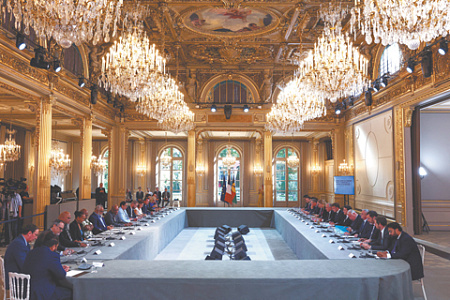
Following tense negotiations near Paris, France has struck a landmark deal with New Caledonian leaders to create a new political entity: the “State of New Caledonia.” This move, granting the Pacific archipelago extensive autonomy but stopping short of full independence, comes after months of violent protests in 2024 that resulted in several deaths and brought the territory to a standstill.
The agreement is a direct response to the unrest, which was triggered by a controversial electoral reform from Paris. The law would have granted voting rights to French mainlanders with ten years of residency, sparking fears among the indigenous Kanak population that their political voice would be permanently diluted. This led to widespread protests, causing an estimated €2 billion in damages and severely disrupting the island’s crucial nickel industry.
Under the new arrangement, announced by President Emmanuel Macron’s office, New Caledonia will gain the power to conduct its own foreign policy—in coordination with French interests—and join international organizations. The deal also paves the way for a greater say in security and justice, a revised electoral roll potentially limited to long-term residents, and a new flag, anthem, and distinct New Caledonian citizenship enshrined in the French Constitution.
This is a framework agreement, not a final settlement. It must first be approved by the French Parliament before being put to a referendum in New Caledonia, likely in 2026. The vote will follow three failed independence referendums held between 2018 and 2021, where a majority opted to remain part of France, partly due to concerns over the economic viability of a fully independent state.
For Paris, the compromise is a strategic necessity. New Caledonia is a global heavyweight in nickel production, holding around 11% of the world’s reserves, a metal vital for batteries and electronics. The agreement includes French economic aid to support the territory and its mining sector, securing access to this critical resource.
Beyond its mineral wealth, the archipelago is a key French military and strategic outpost in the increasingly competitive Indo-Pacific region. By conceding greater autonomy, President Macron has successfully de-escalated a dangerous crisis, calming independence advocates while preserving France’s sovereignty, resource access, and geopolitical foothold in a critical part of the world.
